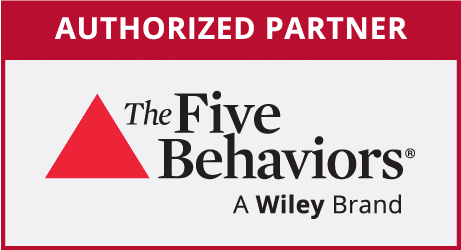
Addressing participant anxiety around taking the DiSC assessment
Personality assessments like Everything DiSC® offer valuable insights into individual behaviors and team dynamics. However, it’s not uncommon for participants to feel apprehensive about taking such assessments. Concerns may stem from past experiences, privacy issues, or skepticism about the assessment’s validity or how the results will be used. As facilitators, it’s crucial to address these anxieties to ensure a productive and positive experience for all involved.
Understanding the Roots of Assessment Anxiety
Learners may have various concerns, including:
-
Fear of Judgment: Worrying that their results might label them negatively.
-
Privacy Concerns: Uncertainty about how their data will be used or who will have access.
-
Skepticism: Doubts about the scientific validity or relevance of the assessment.
-
Job Security: Fears that results could impact their employment status or opportunities.
Strategies to Alleviate Concerns
1. Share Clear Information
Begin by explaining the purpose and benefits of the DiSC assessment. Emphasize that:
-
Non-Judgmental: DiSC profiles describe behavioral tendencies, not abilities or worth.
-
Privacy Protected: Results are confidential and used solely for developmental purposes.
-
Scientifically Backed: The assessment is grounded in research and validated for accuracy.
-
No Employment Impact: Assure participants that results won’t affect job status or evaluations.
2. Provide Sample Profiles
Offering a sample profile can demystify the process. Seeing the format and type of information provided helps set expectations and reduces uncertainty.
3. Share Personal Experiences
Discussing your own DiSC profile and how it has aided your professional development can build trust. It humanizes the process and shows the practical value of the assessment.
4. Prepare Participants for the Process
Before sending out the assessment link, outline what the assessment entails, how long it takes, and how the results will be used. Transparency fosters a sense of control and reduces anxiety. For example, you can use this sample template text along with the assessment link (please customize it according to your needs and situation):
Hi!
Here is your personal link to complete the DiSC assessment. The questionnaire takes approximately 15–20 minutes to complete. As you respond, think about the behaviors that feel most natural and typical for you across different situations.
Please remember that DiSC is not a test—there are no right or wrong answers, and it does not measure intelligence or predict success. Your results are based on your own perception of yourself, not someone else’s.
Once you’ve completed the assessment, you’ll gain immediate access to your personalized results on the Catalyst learning platform. There, you’ll find valuable insights to help you better understand yourself and other DiSC styles and learn how to use this knowledge to enhance communication—both personally and professionally.
We look forward to seeing you at the DiSC workshop!
(Your Name)
5. Follow Up Post-Assessment
After the assessment, check in with participants to address any lingering questions or concerns. This reinforces support and underscores the developmental intent of the process.
Addressing participant anxiety proactively ensures a more effective and meaningful DiSC assessment experience. By fostering an environment of transparency, support, and trust, facilitators can help individuals embrace the insights offered and apply them towards personal and professional growth.
You might also be interested in






